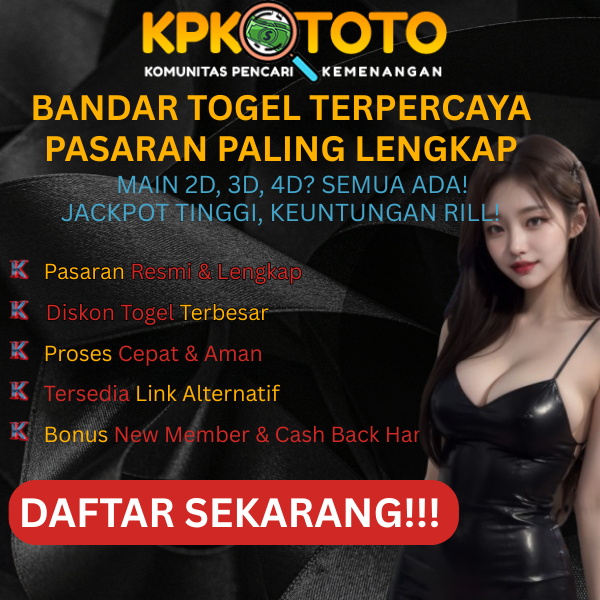
KPKTOTO SLOT LOGIN SITUS SLOT GACOR JACKPOT MELIMPAH RTP ANTI RUNGKAT RUNGKAT CLUB
 Podcast
– Original recording
Podcast
– Original recording
Kpktoto Slot ialah situs slot gacor dengan kemungkinan jackpot melimpah dan di lengkapi denga RTP slot di semua jenis permainan serta anti rungkat.
Menghadapi derasnya pertumbuhan arus digital, Kpktoto hadir sebagai situs slot yang terpercaya, dengan tampilan visual yang memukau dan mudah di mengerti, Kpktoto juga dapat di akses 24 jam full non-stop, di dukung langsung oleh provider provder slot besar, kpktoto menjamin kelengkapan permainan di situs slot yang satu ini.
Sebagai situs slot gacor jackpot melimpah, Kpktoto menawarkan pengalaman permain anti rungkat rungkat club, dengan RTP yang transparan dan gacor, anda bisa menentukan permainan apa yang akan anda mainkan, perlu anda ketahui, semakin besar persentase pada RTP, semakin besar juga persentase kemenangan anda.
Kpktoto sebagi Situs Slot Gacor anti rungkat, menawarkan keuntungan keuntungan yang sayang jika anda lewatkan, seeperti promo deposit harian, Jackpot progressif yang terus menerus bertambah setiap harinya, RTP rata rata permainan di atas 95%, event slot mingguan, cash back slot, dan rollingan slot, jadi Kpktoto menang/kalah anda akan tetap untung.
Mengantongi Lisensi resmi, Kpktoto terbukti lulus uji cobak dari pemberi lisensi lisensi bernama, seperti WLa & APLA, dengan sistem permainan yang adil dan tranpsparant, serta di dkung langsung oleh sistem keamanan yang canggih dan super ketat, menjadikan Kpktoto sebagai situs slot ter aman sepanjang masa.
KPKTOTO SITUS SLOT DARING TIPS MAIN SLOT GACOR
Dengan mengusung title sebagai Situs Slot daring dengan akses mudah 24jam, kpktoto ingin membagikan tips main slot gacor di agen slot yang satu ini :
Dari kemudahan login, ragam slot gacor, bonus yang berlimpah, hingga jackpot fantastik KPKTOTO SLOT hadir bukan sekadar sebagai situs permainan, tapi sebagai partner cuan kamu di dunia slot online, ayok bergabung dengan komunitas KPKtoto slot
Customer reviews
-
5 star4 star3 star2 star1 star5 star100%100%100%100%100%100%
-
5 star4 star3 star2 star1 star4 star0%0%0%0%0%0%
-
5 star4 star3 star2 star1 star3 star0%0%0%0%0%0%
-
5 star4 star3 star2 star1 star2 star0%0%0%0%0%0%
-
5 star4 star3 star2 star1 star1 star0%0%0%0%0%0%

 Promosi
Promosi
 Login
Login
 Daftar
Daftar
 Link
Link
 Live Chat
Live Chat